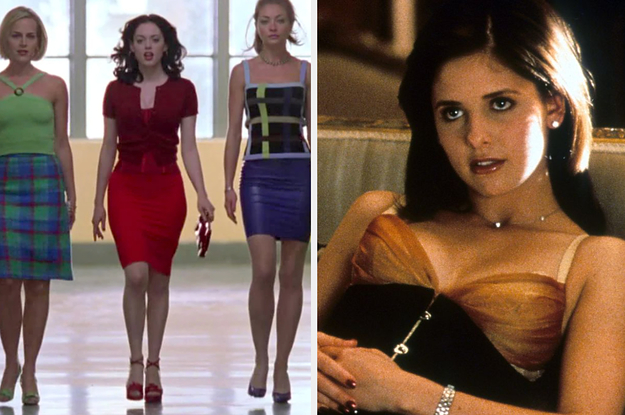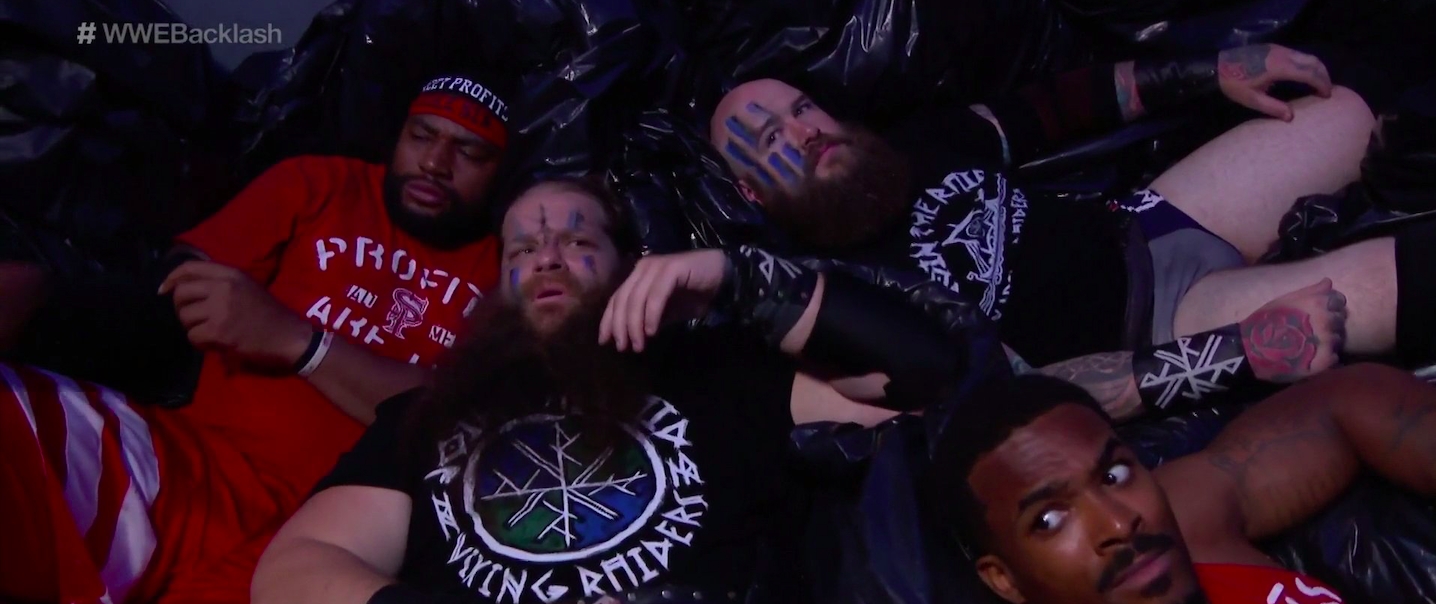
Here are your quick and dirty, editorial-free WWE Backlash 2020 results. The show featured The Greatest Wrestling Match Ever , and other, presumably less successful wrestling matches. Make sure you’re here tomorrow for the complete Best and Worst of Backlash column.
, and other, presumably less successful wrestling matches. Make sure you’re here tomorrow for the complete Best and Worst of Backlash column.
WWE Backlash results:
1. Kickoff Show Match for the United States Championship: Apollo Crews (c) defeated Andrade. Angel Garza accompanied Andrade to the ring, so Kevin Owens sat in on commentary to even the odds. Owens hit Garza with a Stunner, and Crews countered the Hammerlock DDT into a Toss Powerbomb to retain the championship.
2. Women’s Tag Team Championship Triple Threat Match: Sasha Banks and Bayley (c) defeated Alexa Bliss and Nikki Cross and The IIconics. Bliss hit Twisted Bliss on Peyton Royce, but Sasha Banks rolled Bliss out of the pin into a pin of her own to win the match.
– WWE’s next pay-per-view will be Extreme Rules on July 19.
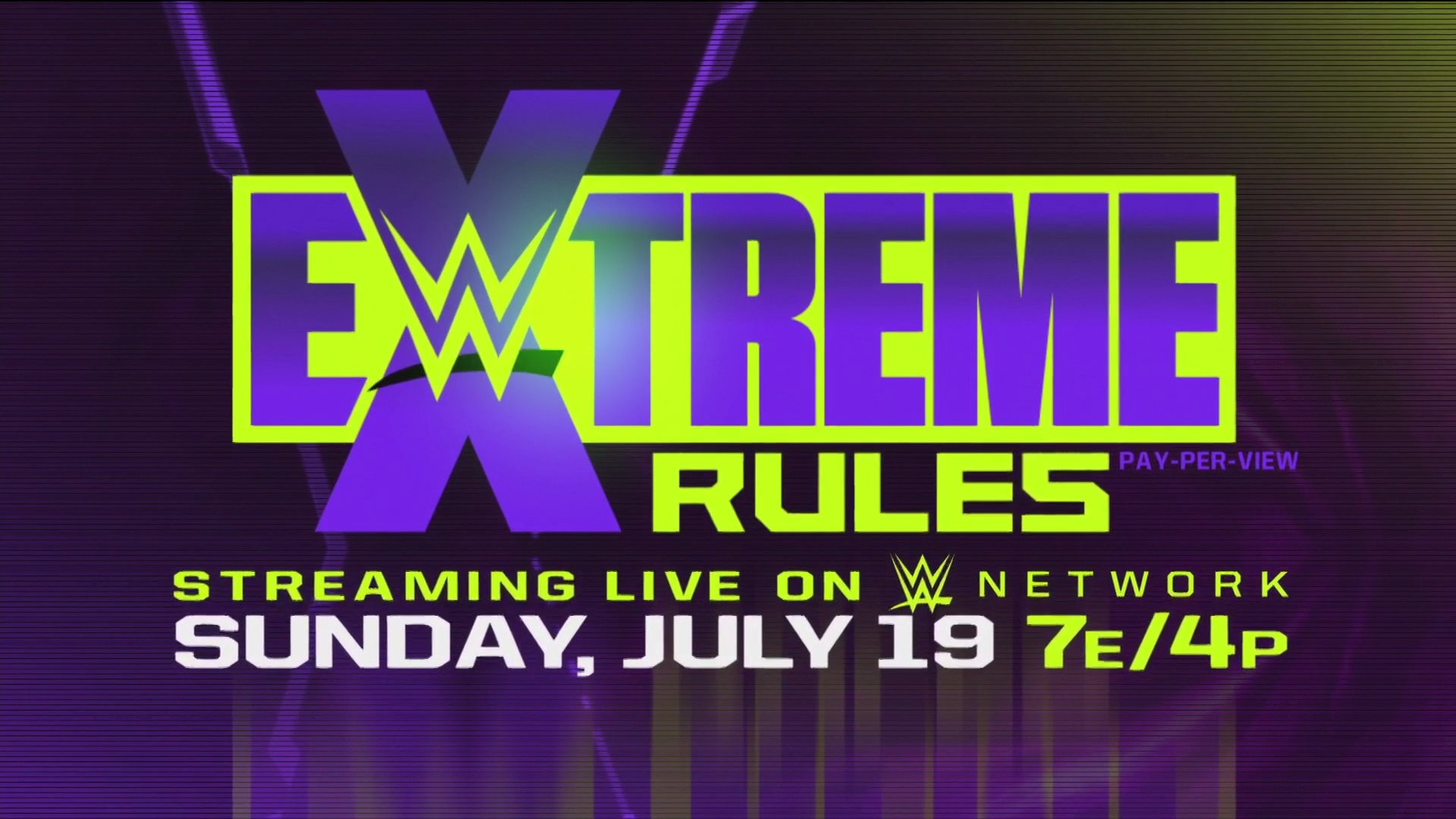
3. Sheamus defeated Jeff Hardy. Hardy tried to run along the security railing and dive onto Sheamus, but got Brogue Kicked. Back in the ring, Sheamus hit a second Brogue Kick for the win.
4. Raw Women’s Championship Match: Asuka (c) vs. Nia Jax ended in a double count-out.
5. Handicap Match for the Universal Championship: Braun Strowman (c) defeated The Miz and John Morrison. Miz and Morrison looked to have the match won after a Skull-crushing Finale and double stomp combination, but Miz broke up Morrison’s pin. With the team’s momentum ruined, Strowman pinned Morrison after a powerslam.
6. Universal Championship Match: Drew McIntyre (c) defeated Bobby Lashley. Lashley gained an early advantage by locking in the full nelson on McIntyre before the bell rang. After a competitive match, Lana showed up and caused a distraction, allowing McIntyre to hit the Claymore and retain the championship.
– The advertised Raw Tag Team Championship match between the Street Profits and the Viking Raiders turned out to be an extended backstage skit that saw them fight through the parking lot and backstage area. This turned into broad comedy involving sword fights, Akira Tozawa showing up with a gang of motorcycle ninjas for some reason, and multiple flashback dream sequences. It ended when all four men fell in the trash and were threatened by what appeared to be an alligator that growled like a tiger. I promise I did not do drugs before typing this paragraph.
#VikingProfits … now might be the time to RUN. #WWEBacklash pic.twitter.com/x74Hepf1dx
— WWE Universe (@WWEUniverse) June 15, 2020
7. Randy Orton defeated Edge in the Greatest Wrestling Match Ever . This match was presented with “unique camera angles and enhanced audio,” meaning it had canned crowd noise. Both men were introduced by a voiceover from the late Howard Finkel, and referee Charles Robinson delivered pre-match rules while wearing the old WWF referee outfit. Orton kicked out of multiple spears, and Edge kicked out of multiple RKOs. After about 45 minutes, Orton countered Edge’s Anti-Venom submission with a low blow and punted him to win the match.
. This match was presented with “unique camera angles and enhanced audio,” meaning it had canned crowd noise. Both men were introduced by a voiceover from the late Howard Finkel, and referee Charles Robinson delivered pre-match rules while wearing the old WWF referee outfit. Orton kicked out of multiple spears, and Edge kicked out of multiple RKOs. After about 45 minutes, Orton countered Edge’s Anti-Venom submission with a low blow and punted him to win the match.
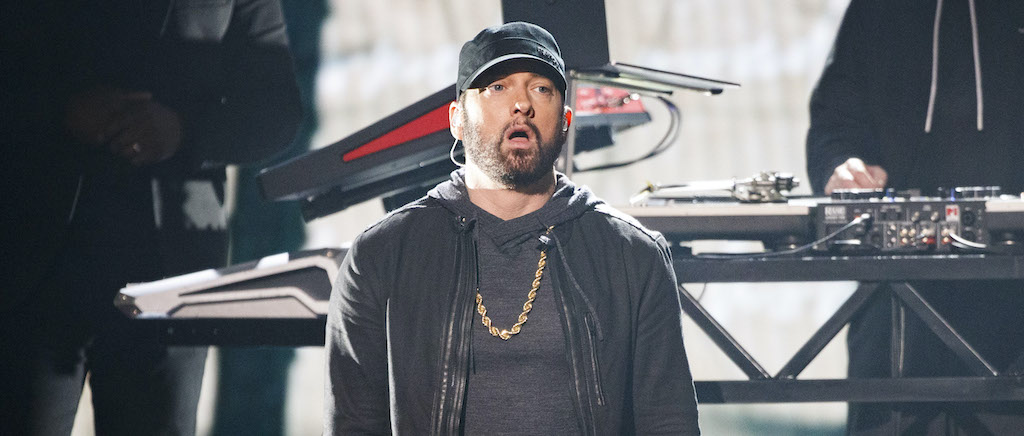
Last month, Eminem celebrated the milestones of two of his most critically acclaimed albums: The Marshall Mathers LP, released in May of 2000, and The Eminem Show, released in June of 2002. Most of the celebration was for the former, as it was celebrating its 20th anniversary. As for The Eminem Show, one of its most memorable moments came when Eminem rattled off his list of greatest rappers of all-time, one that included himself, Redman, Jay-Z, Notorious B.I.G., Tupac, Andre 3000, Jadakiss, Kurupt, and Nas. Eighteen years later, the Detroit legend has provided an updated version of that list.
For me, in no particular order… Toss up between wayne, pac, royce, jay, redman, treach, g. rap, biggie & king crook….
— Marshall Mathers (@Eminem) June 14, 2020
Plus redman, LL, nas, joyner, kendrick, cole, andre, rakim, kane…
— Marshall Mathers (@Eminem) June 14, 2020
YouTuber NoLifeShaq recently put out a video where he DM’ed 30 rappers asking for their pics for greatest rappers of all time. Normally quiet, Eminem surprisingly offered a response, rattling off a list over a pair of tweets. The list, he said, was “in no particular order,” and in it he named Lil Wayne, Tupac (who he said “might be the greatest songwriter of all time “), Royce Da 5’9”, Jay-Z, Redman, Treach, Kool G Rap, Notorious B.I.G., Kxng Crooked (who he called the most underrated rapper), LL Cool J, Nas, Joyner Lucas, Kendrick Lamar, J. Cole, Andre 3000, Rakim, and Big Daddy Kane.
Eminem is just the latest rapper to give his list of greatest rappers of all time. Ludacris shared his list of top five flows, which included Andre 3000, Kendrick Lamar, J. Cole, Jay-Z, and Lil Wayne. Drake also shared his list of top five rappers, which included B.I.G., Jay-Z, Lil Wayne, Andre 3000, and OVO Hush.
Check out Eminem’s tweets above to see his list.
Everything from insect repellent to cute summer bags to illustrations of Dr. Frasier Crane — all for $5.

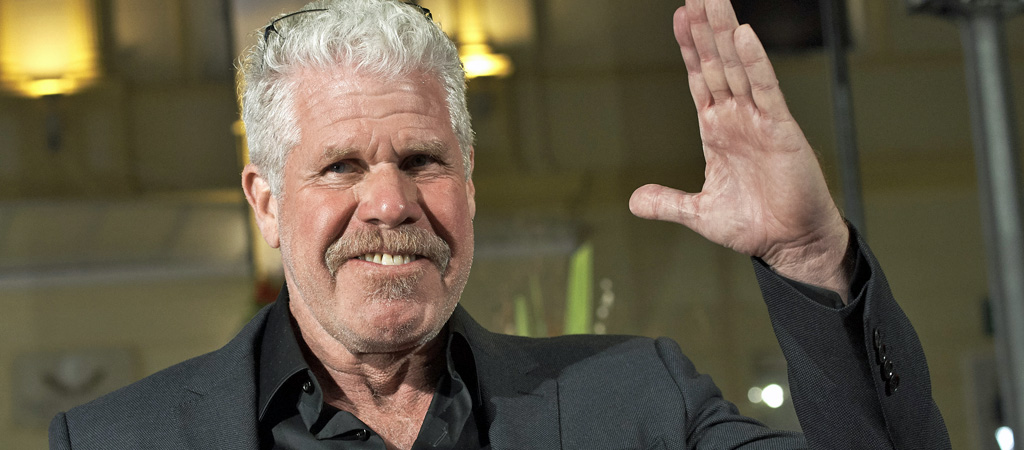
Ron Perlman plays a lot of reactionary tough guys — perhaps most notably Clarence “Clay” Morrow on Sons of Anarchy — but in real life he’s an outspoken progressive. He’s often bragged about giving Harvey Weinstein a “pee handshake.” He also tweets a lot, mostly about politics, and he doesn’t mince words when talking about the current administration. So when he got some pushback from one of Trump’s biggest allies over social media, Perlman responded in kind.
It began Saturday night, when the former Hellboy called out Florida Representative Matt Gaetz — one of the president’s most loyal lapdogs, known for, among other oddities, cryptically threatening Michael Cohen, prompting much online mockery — for a tweet denouncing the U.S.’s wildly successful national soccer team, who famously had no interest in accepting congrats from a president they despised.
The US Soccer team called and you guessed it… said they couldn’t give any less of a fuck about what you two dipshits think. @realDonaldTrump @mattgaetz
— Ron Perlman (@perlmutations) June 13, 2020
“The US Soccer team called and you guessed it… said they couldn’t give any less of a f*ck about what you two dips*its think,” Perlman tweeted, tagging both Gaetz and Trump.
Sunday morning, Gaetz responded:
This racial justice warrior had no problem in Hollywood portraying the White Supremacist leader of a motorcycle gang. #SOA https://t.co/mKUFz4y5ru
— Matt Gaetz (@mattgaetz) June 14, 2020
“This racial justice warrior had no problem in Hollywood portraying the White Supremacist leader of a motorcycle gang,” Gaetz wrote, adding a Sons of Anarchy hashtag. The politician — who was dragged online last year for seeming to think old children’s entertainer Captain Kangaroo referred to kangaroo courts — apparently doesn’t understand what acting is, to Perlman’s amusement.
Yessir, so true! So rewarding playing assholes on tv. Tell me sir, how is it actually being one? https://t.co/8Yk4lXvyAI
— Ron Perlman (@perlmutations) June 14, 2020
“Yessir, so true! So rewarding playing a*sholes on tv,” Perlman wrote, adding, “Tell me sir, how is it actually being one?” Gaetz didn’t let that one go.
Honestly? The fact that Hollywood thinks I’m an asshole is a badge of honor 🙂
You wouldn’t be tweeting about me if my message weren’t true & effective. Threatens your wokeness.
How triggered will you be when @realDonaldTrump is re-elected? More or less than when crooked lost? https://t.co/E31s3MuWP9
— Matt Gaetz (@mattgaetz) June 14, 2020
“Honestly? The fact that Hollywood thinks I’m an a*shole is a badge of honor,” Gaetz wrote, prompting one more reply from Perlman. “You wouldn’t be tweeting about me if my message weren’t true & effective. Threatens your wokeness. How triggered will you be when @realDonaldTrump is re-elected? More or less than when crooked lost?”
Speaking of Woke Matty, do you think it’s just Hollywood that thinks you’re an asshole? Read the comments, I’ll wait… https://t.co/gUg6buUQ7t
— Ron Perlman (@perlmutations) June 14, 2020
“Speaking of Woke Matty, do you think it’s just Hollywood that thinks you’re an a*shole?” Perlman responded. “Read the comments, I’ll wait…”
Gaetz responded by talking about the size of the district he represents. The tweet that started it all is currently pinned at the top of Gaetz’s feed.
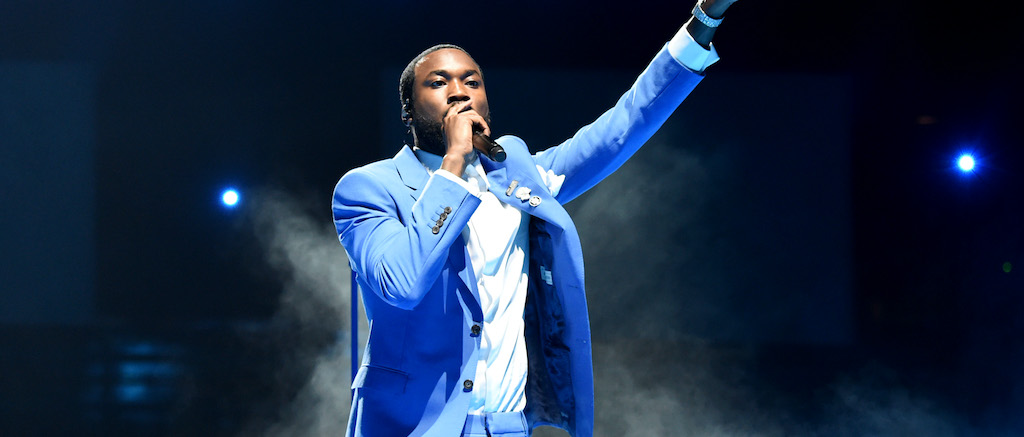
B. Simone has had an up-and-down 2020, to say the least. Her year began with her introduction to the mainstream after she played DaBaby’s ride-or-die lover in his video for “Find My Way.” She then put out her first book, Baby Girl Manifest The Life You Want, which she claimed made her a millionaire. However, this past week things went left, as accusations of plagiarism turned up from all corners of social media. She was quickly written off — an action Meek Mill sees as a bit hypocritical.
B Simone canceled because she finnesed a book and made her way from the bottom lol what major companies y’all cancel for ripping our culture off? finding ways to display hate towards our own when they start doing good is showing amongst us a lot!
— Meek Mill (@MeekMill) June 14, 2020
“B Simone canceled because she finessed a book and made her way from the bottom lol what major companies y’all cancel for ripping our culture off?” Meek asked his followers on Twitter. “finding ways to display hate towards our own when they start doing good is showing amongst us a lot!”
Niggas rap about selling drugs and a life they didn’t live is that not finessing their own tho? A Louie shirt a stack … a Chanel 5500$ I don’t even think they donate to blacks they number one in our culture … Im just getting confused what we standing for collectively https://t.co/7XfhGEish5
— Meek Mill (@MeekMill) June 14, 2020
When a fan responded to Meek’s tweet saying, “She finessed her ‘own’ though hella different cuz,” Meek offered a response that he hoped would help fans look at the situation differently. “N****s rap about selling drugs and a life they didn’t live is that not finessing their own tho? A Louie shirt a stack … a Chanel 5500$ I don’t even think they donate to blacks they number one in our culture … Im just getting confused what we standing for collectively.”
I never even checked what she really did I’m just tired of seeing blacks canceling blacks … they got us ranked in last place already chill with that shit https://t.co/YEjZVrqxoO
— Meek Mill (@MeekMill) June 14, 2020
Meek’s initial tweet would kick off a string of others relating to canceling some individuals and groups and not others. At the end of it all, he would later admit to not knowing what B. Simone was being canceled for, but was just “tired of seeing blacks canceling blacks.”
Meek Mill is a Warner Music artist. Uproxx is an independent subsidiary of Warner Music Group.

